On July 9, 1868, the Fourteenth Amendment to the United States Constitution was adopted, overruling the Dred Scott v. Sandford decision. This Amendment, also known as the Reconstruction Amendment, granted citizenship to “all persons born or naturalized in the United States.” The 14th Amendment forbid states to deny any person “life, liberty, or property, without due process of law” or to deny any person “equal protection of the laws.”
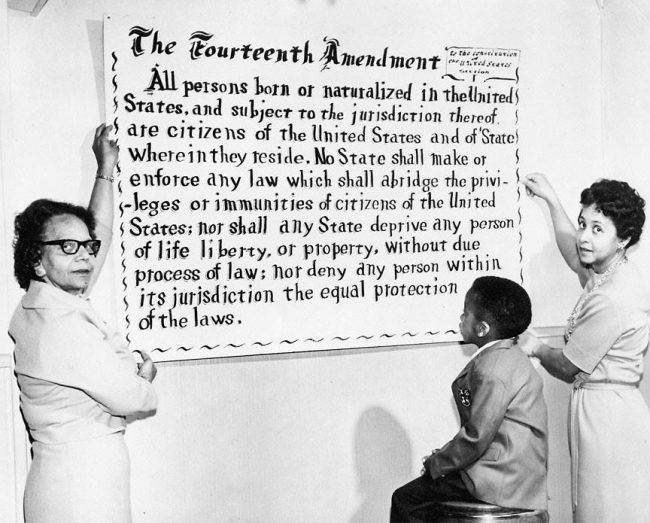
Sylvia Thompson (left) with an unidentified woman and child holding up a poster-sized copy of the 14th Amendment for the 50th anniversary of the Portland, Oregon office of the NAACP in 1964. Source: Oregon Historical Society
The amendment was designed to grant citizenship to and protect the civil liberties of people recently freed from slavery. These liberties were undermined and limited after the Plessy v. Ferguson (1896) Supreme Court case which upheld the constitutionality of segregation, Jim Crow laws, and Black codes.
Howard Zinn writes in Chapter 11: Robber Barons and Rebels of A People’s History of the United States:
Very soon after the Fourteenth Amendment became law, the Supreme Court began to demolish it as a protection for Black [people], and to develop it as a protection for corporations. However, in 1877, a Supreme Court decision (Munn v. Illinois) approved state laws regulating the prices charged to farmers for the use of grain elevators. The grain elevator company argued it was a person being deprived of property, thus violating the Fourteenth Amendment’s declaration “nor shall any State deprive any person of life, liberty, or property without due process of law.” The Supreme Court disagreed, saying that grain elevators were not simply private property but were invested with “a public interest” and so could be regulated. . . .
By this time [1886, the year in which the Supreme Court had removed 230 state laws which sought to regulate corporations], the Supreme Court had accepted the argument that corporations were “persons” and their money was property protected by the due process clause of the Fourteenth Amendment. Supposedly, the Amendment had been passed to protect Negro rights, but of the Fourteenth Amendment cases brought before the Supreme Court between 1890 and 1910, nineteen dealt with the Negro, 288 dealt with corporations. [Read more in A People’s History of the United States.]
Find resources below to teach about the all too brief and often overlooked history of the Reconstruction era.

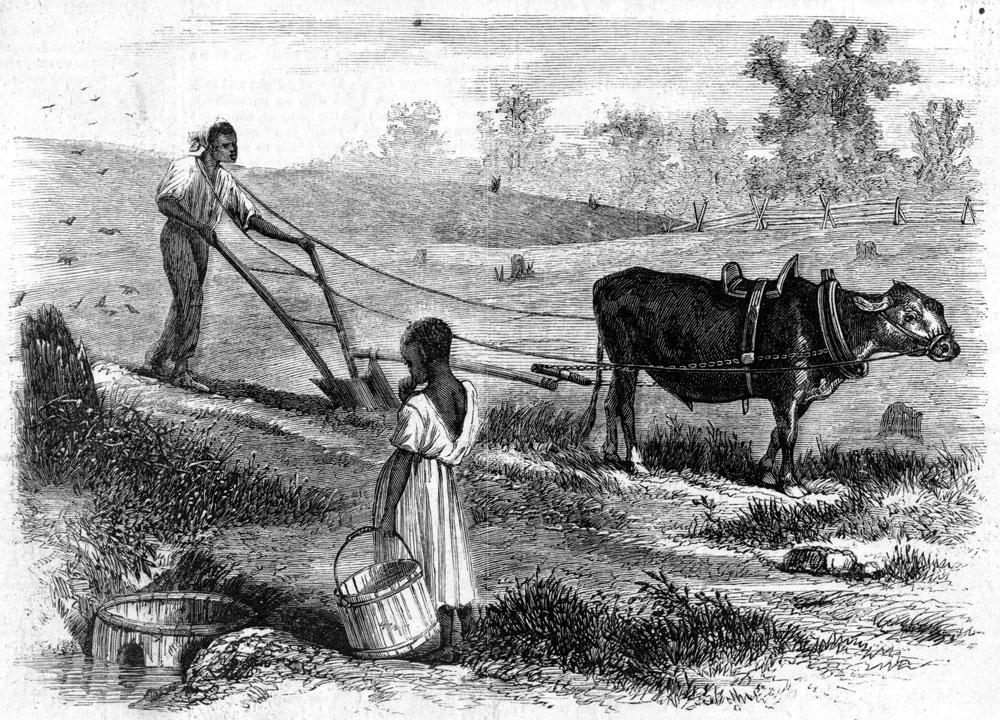
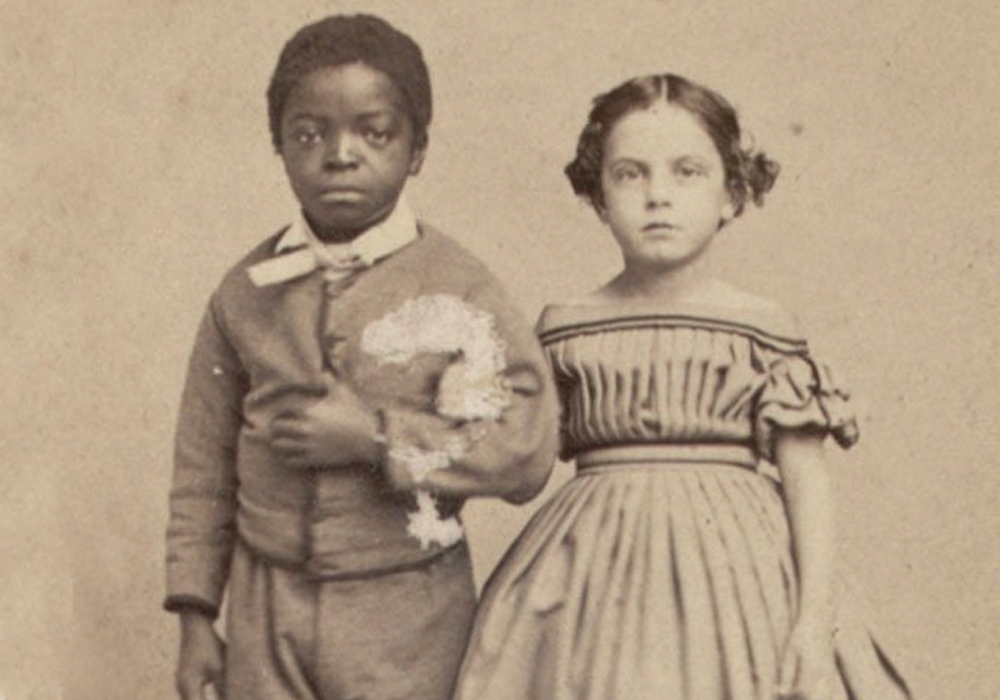
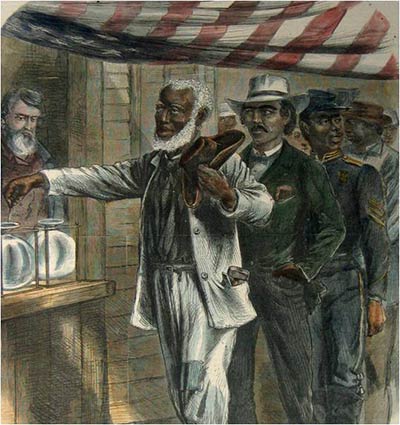
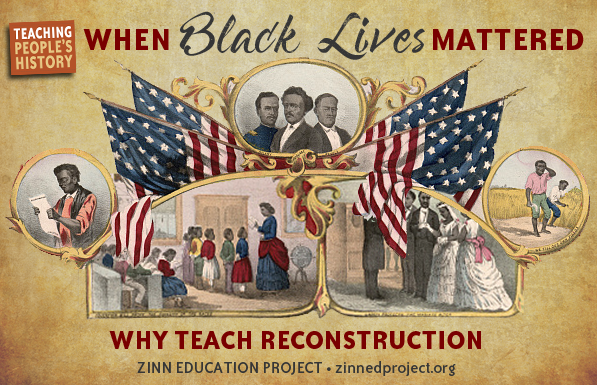
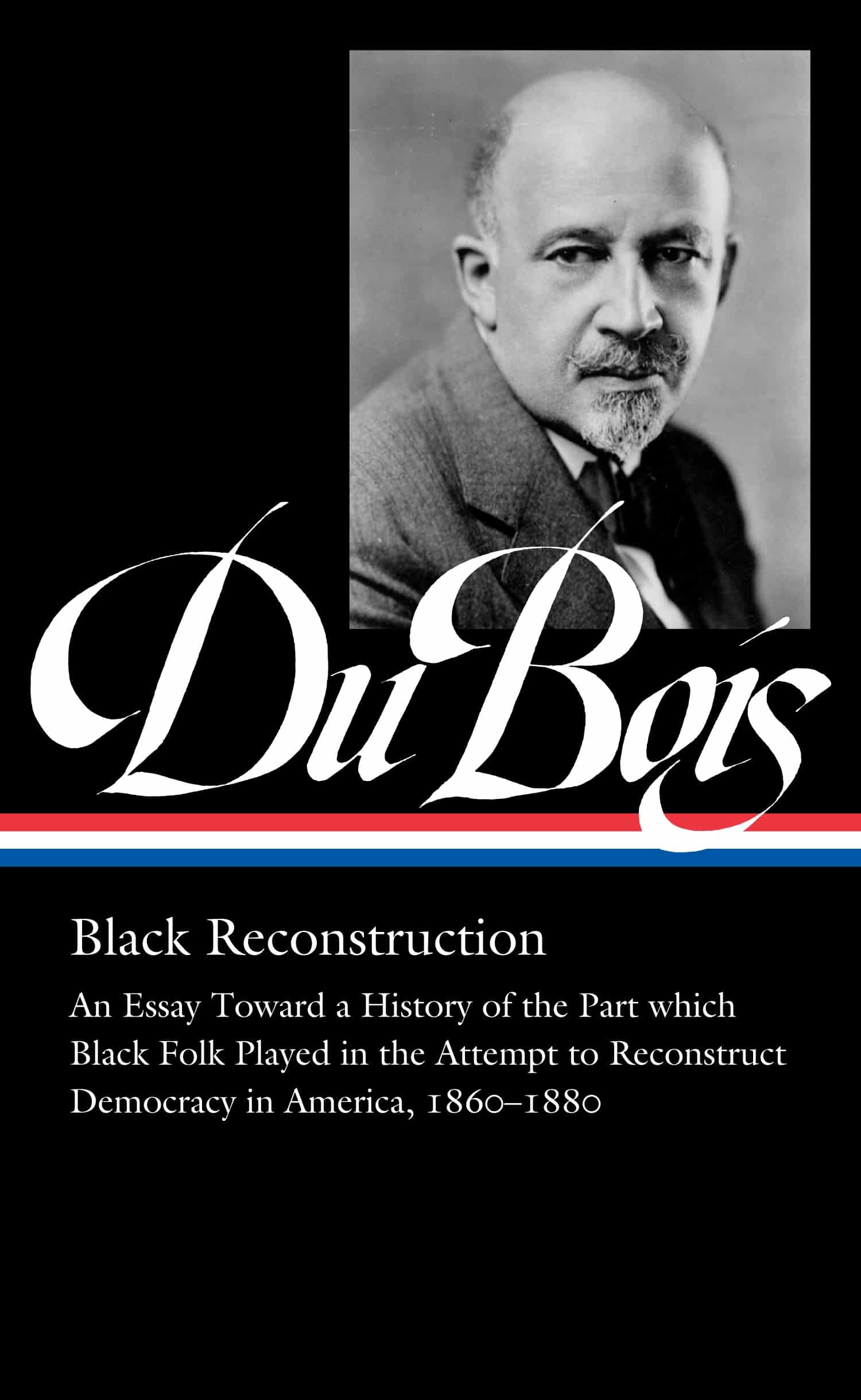
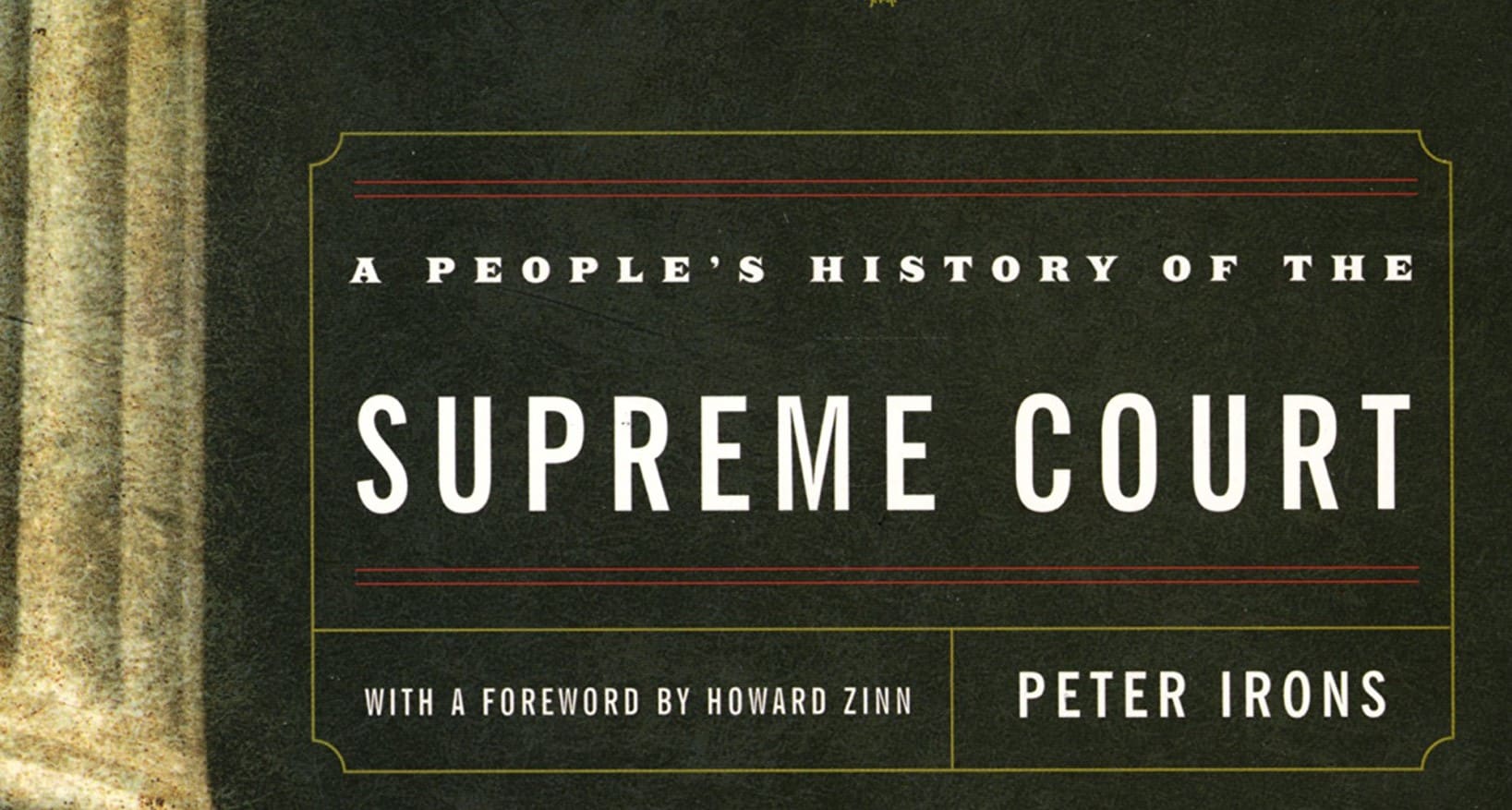





Twitter
Google plus
LinkedIn